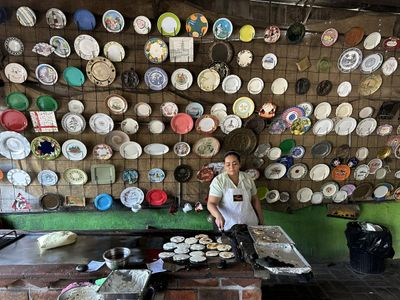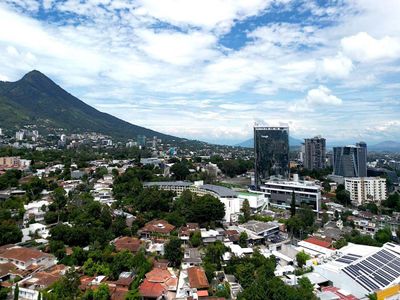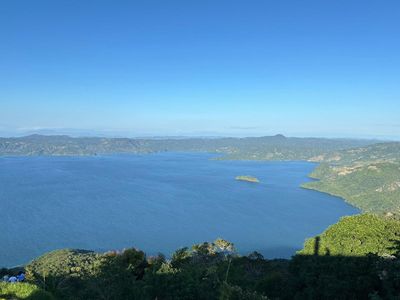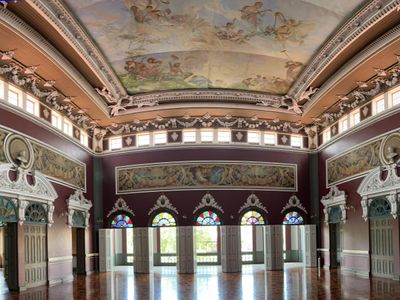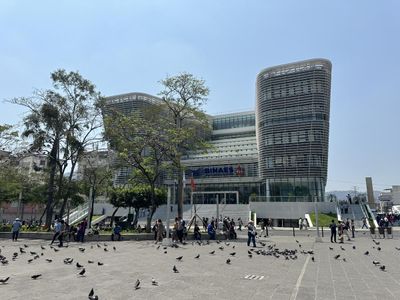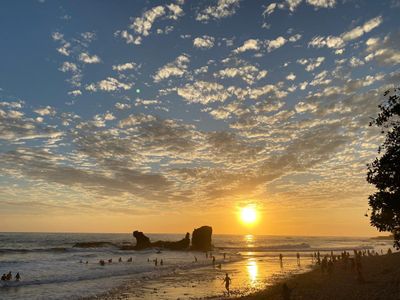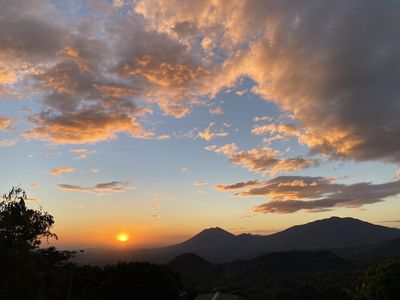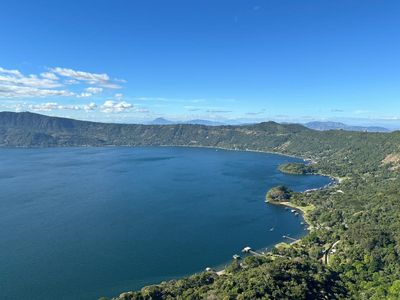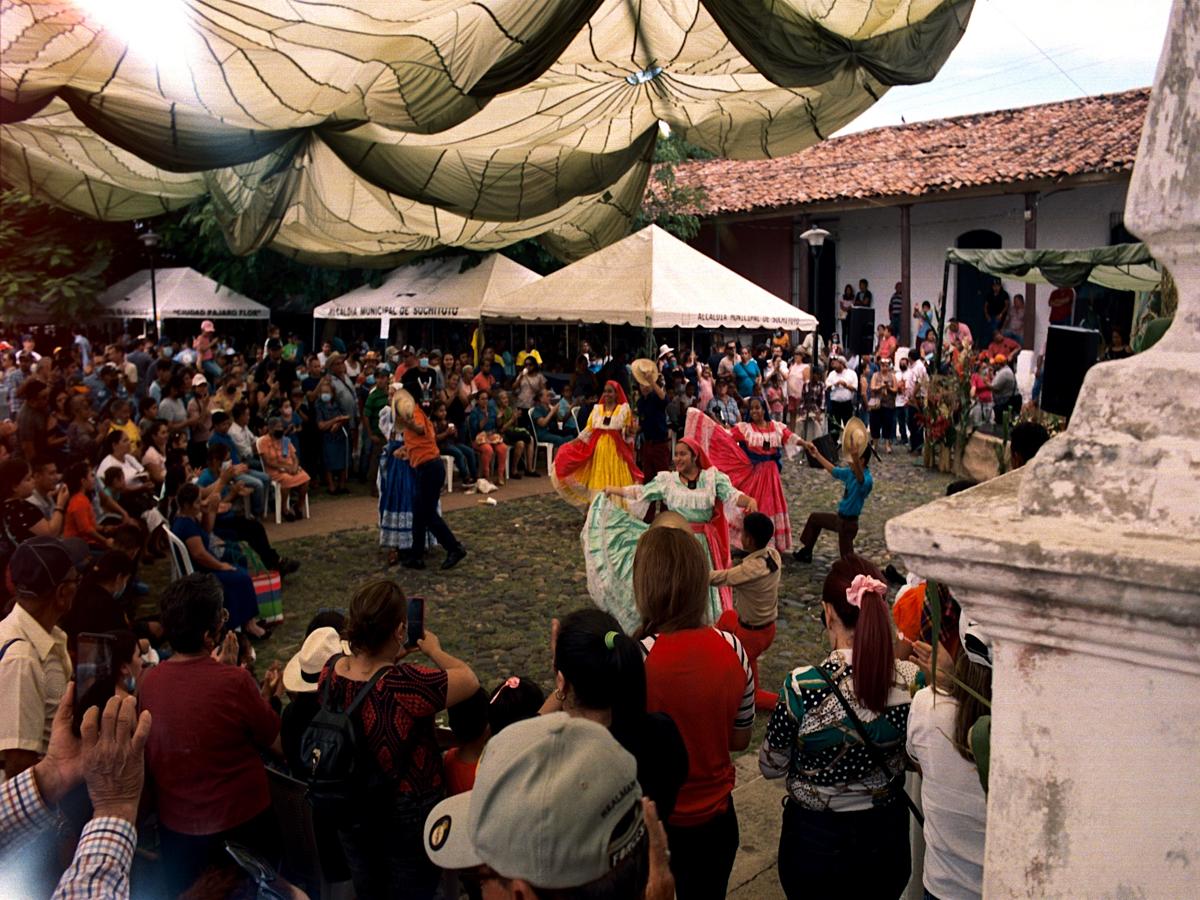
Welcome, fellow travelers and coffee lovers! Today, we embark on a delightful journey through the enchanting coffee towns of El Salvador, with a focus on the famed Ruta de las Flores, ''Route of the Flowers''. We'll also make a slight (albeit picturesque) detour to the charming town of Suchitoto. Prepare your senses for a rich blend of aromatic coffee, colorful flora, and breathtaking landscapes.
The history of coffee in El Salvador dates back to the mid-19th century when coffee cultivation began to take root in the dynamic soil of this Central American nation. By the late 1800s, coffee had replaced indigo as the country's primary agricultural export. The highlands of El Salvador, with their volcanic soil and favorable climate, proved ideal for growing high-quality Arabica coffee beans.
The coffee boom brought prosperity, as well as socio-economic changes. Large coffee estates, known as fincas, emerged, often under the control of a small elite. Over time, coffee cultivation became deeply embedded in the country's culture and economy, earning El Salvador a significant place in the global coffee market. Despite periods of political and economic challenges, the coffee industry has continued to be a vital part of Salvadoran life, reflecting resilience and adaptability.
Today, coffee tourism has become increasingly popular, allowing visitors to explore scenic plantations and learn about the art and science of coffee production. And now, it's time to explore some of the quaint coffee towns that define El Salvador’s Ruta de las Flores.
Our journey begins in Juayúa (pronounced "why-you-ah"), a picturesque town best known for its vibrant weekend food festival, the Fería Gastronómica. Every weekend, the main square fills with food stalls offering a mouthwatering array of traditional Salvadoran dishes, from pupusas to grilled meats and exotic fruits.
Juayúa is also famous for its seven waterfalls, a stunning natural attraction that invites exploration and adventure. Visitors can take guided tours through lush forests to discover these hidden gems, perfect for a refreshing dip.
Of course, no visit to Juayúa would be complete without delving into its coffee heritage. Several local coffee plantations open their doors to visitors, offering tours that detail the journey of coffee from bean to cup. These tours often end with a tasting session, where you can savor some of the freshest coffee you'll ever experience.
For further exploration of Juayúa, consider checking out this guide.
Next, we head to Apaneca, the highest town on the Ruta de las Flores. Its elevation and climate make it ideal for growing some of the region's most prestigious coffee varieties. In fact, Apaneca is part of the Apaneca-Ilamatepec mountain range, a designated UNESCO Biosphere Reserve due to its diverse ecosystems and exceptional biodiversity.
Apaneca is also a paradise for adventure seekers, boasting thrilling activities like zip-lining over lush coffee plantations and trekking through volcanic landscapes. After your adventures, there's nothing quite like relaxing at a local café, sipping on award-winning coffee while enjoying panoramic views.
The town itself is quaint, with cobblestone streets and colonial architecture that capture the region's history and charm. The vibrant murals and colorful houses add to its picturesque appeal.
To learn more about the wonders of Apaneca, check out Lonely Planet's insights.
Our next stop is Ataco, a town that feels like a living art gallery. Renowned for its vibrant street art, Ataco is a colorful canvas where local artists have painted murals depicting tradition, culture, and everyday life. These murals bring the town's walls to life, inviting contemplation and admiration.
Ataco is home to numerous artisanal shops, offering unique crafts and textiles that reflect the creativity and skill of local artisans. It's the perfect place to pick up a piece of Salvadoran heritage as a memento of your journey.
Coffee, naturally, is at the heart of Ataco's identity. The area is dotted with coffee estates that offer immersive experiences, from guided tours to hands-on processing workshops. These experiences underscore the meticulous care that goes into producing coffee of the highest caliber.
Discover more about the artistic essence of Ataco by visiting Culture Trip's guide.

While not part of the Ruta de las Flores, Suchitoto deserves a spot on our coffee journey for its colonial charm and rich cultural tapestry. Perched on the shores of Lake Suchitlán, this town radiates tranquility and history.
Suchitoto's cobbled streets and well-preserved architecture transport visitors back in time. The town's cultural vibrancy is palpable, with numerous galleries, theaters, and cultural centers showcasing local art and traditions. Festivals and events are frequent, celebrating everything from film to folklore.
Though not a traditional coffee town, Suchitoto offers a variety of cozy cafés where you can enjoy Salvadoran coffee while soaking in the serene surroundings. The town is also known for its Indigo workshops, where visitors can learn about this ancient dye technique that predates the coffee era.
Suchitoto is a unique town in El Salvador and it is included in Vivo's article on real estate investment in El Salvador. 🦜
Throughout these charming towns, the culture of coffee in El Salvador has evolved to embrace both tradition and innovation. Coffee is not only a drink but a celebration of community and craft. It's an industry that supports countless families, from farmers to baristas, and inspires creativity in cuisine and the arts.
In recent years, efforts to promote sustainable farming and fair-trade practices have gained momentum, reflecting global shifts towards more ethical consumption. Many Salvadoran coffee growers are now embracing agroforestry practices, which enhance biodiversity and ensure the protection of the environment for generations to come.
Additionally, the rise of specialty coffee shops and niche roasteries in urban areas like San Salvador has brought new appreciation for the artistry involved in coffee preparation. From cold brews to pour-overs, the Salvadoran coffee experience is as diverse as it is delicious.
Exploring the coffee towns of El Salvador, especially along the Ruta de las Flores, is more than just a visit to charming locales—it's an immersion into the heart of Salvadoran culture and history. The aromas, flavors, and stories of these towns paint a rich tapestry that invites both introspection and celebration.
Whether you're sipping a cup of freshly brewed coffee while gazing at a waterfall in Juayúa, capturing the beauty of Ataco's murals with your camera, or wandering the tranquil streets of Suchitoto, you'll find that every moment is steeped in the warmth and hospitality of El Salvador.
And as we conclude this journey, one thing remains certain: El Salvador's coffee towns offer far more than just coffee. They offer a taste of life itself, rich and full-bodied, waiting to be savored.
For further reading on the beautiful coffee culture in El Salvador, check out Coffee Hunter's exploration of how this country is preserving its coffee heritage.
And if you are a foreigner looking to purchase in El Salvador, Vivo has a few pointers in a post from earlier in the year.
Muchas gracias for joining me on this aromatic adventure. Until next time, happy caffeinated travels!

Sam Martinez
I am a dedicated and passionate real estate professional with more than a decade experience in the real estate market.Explore our latest blog posts
